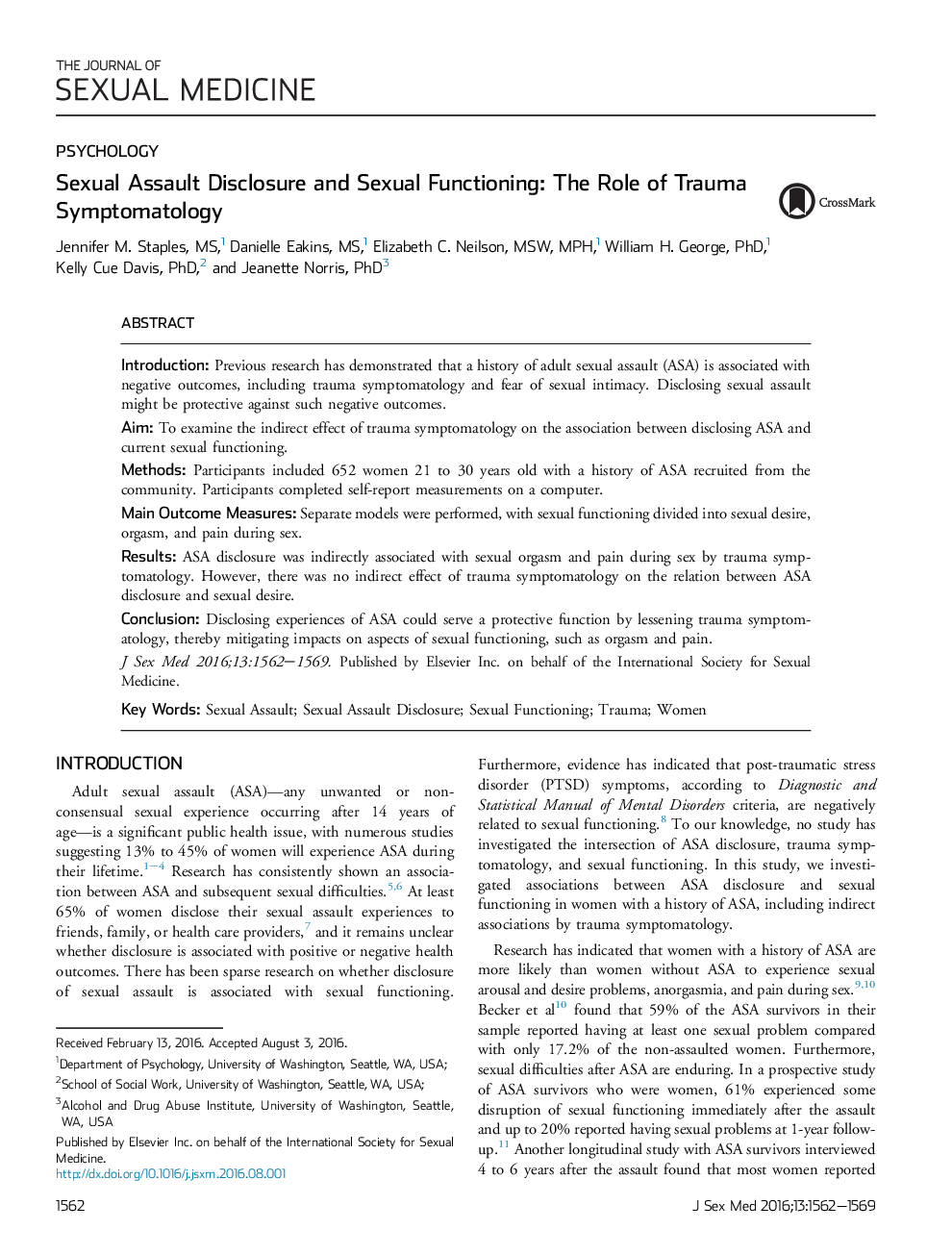| Article ID | Journal | Published Year | Pages | File Type |
|---|---|---|---|---|
| 4268962 | The Journal of Sexual Medicine | 2016 | 8 Pages |
IntroductionPrevious research has demonstrated that a history of adult sexual assault (ASA) is associated with negative outcomes, including trauma symptomatology and fear of sexual intimacy. Disclosing sexual assault might be protective against such negative outcomes.AimTo examine the indirect effect of trauma symptomatology on the association between disclosing ASA and current sexual functioning.MethodsParticipants included 652 women 21 to 30 years old with a history of ASA recruited from the community. Participants completed self-report measurements on a computer.Main Outcome MeasuresSeparate models were performed, with sexual functioning divided into sexual desire, orgasm, and pain during sex.ResultsASA disclosure was indirectly associated with sexual orgasm and pain during sex by trauma symptomatology. However, there was no indirect effect of trauma symptomatology on the relation between ASA disclosure and sexual desire.ConclusionDisclosing experiences of ASA could serve a protective function by lessening trauma symptomatology, thereby mitigating impacts on aspects of sexual functioning, such as orgasm and pain.
